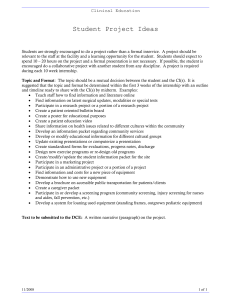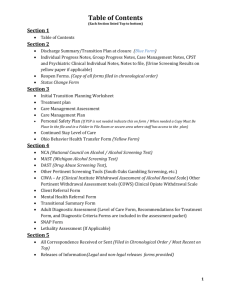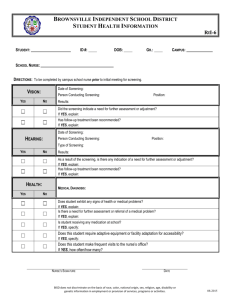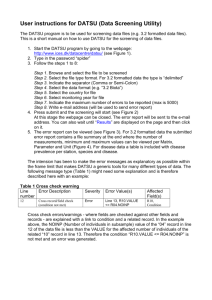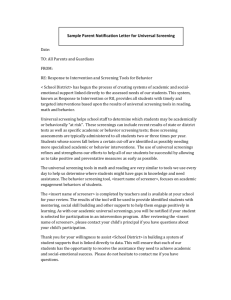This paper considers von Neumann-Morgenstern (vNM) stable sets
advertisement
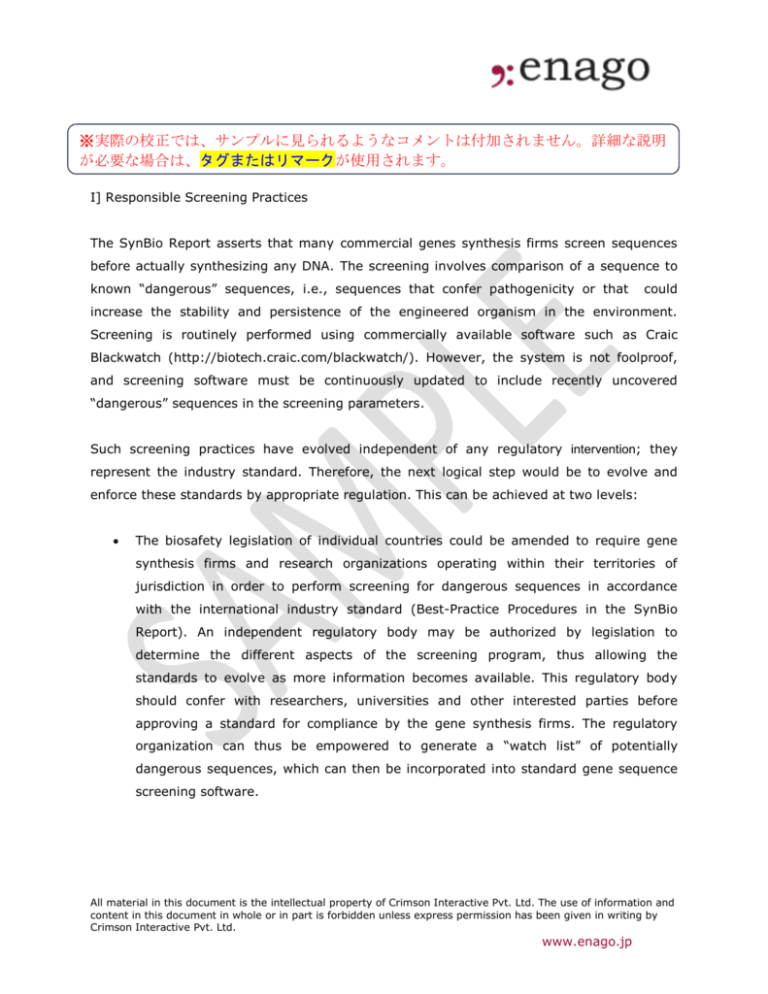
※実際の校正では、サンプルに見られるようなコメントは付加されません。詳細な説明 が必要な場合は、タグまたはリマークが使用されます。 I] Responsible Screening Practices The SynBio Report asserts that many commercial genes synthesis firms screen sequences before actually synthesizing any DNA. The screening involves comparison of a sequence to known “dangerous” sequences, i.e., sequences that confer pathogenicity or that could increase the stability and persistence of the engineered organism in the environment. Screening is routinely performed using commercially available software such as Craic Blackwatch (http://biotech.craic.com/blackwatch/). However, the system is not foolproof, and screening software must be continuously updated to include recently uncovered “dangerous” sequences in the screening parameters. Such screening practices have evolved independent of any regulatory intervention; they represent the industry standard. Therefore, the next logical step would be to evolve and enforce these standards by appropriate regulation. This can be achieved at two levels: The biosafety legislation of individual countries could be amended to require gene synthesis firms and research organizations operating within their territories of jurisdiction in order to perform screening for dangerous sequences in accordance with the international industry standard (Best-Practice Procedures in the SynBio Report). An independent regulatory body may be authorized by legislation to determine the different aspects of the screening program, thus allowing the standards to evolve as more information becomes available. This regulatory body should confer with researchers, universities and other interested parties before approving a standard for compliance by the gene synthesis firms. The regulatory organization can thus be empowered to generate a “watch list” of potentially dangerous sequences, which can then be incorporated into standard gene sequence screening software. All material in this document is the intellectual property of Crimson Interactive Pvt. Ltd. The use of information and content in this document in whole or in part is forbidden unless express permission has been given in writing by Crimson Interactive Pvt. Ltd. www.enago.jp The Cartagena Protocol on Biosafety, a protocol of the Convention on Biological Diversity, may serve as a template for regulating synthetic biology at the international level. All material in this document is the intellectual property of Crimson Interactive Pvt. Ltd. The use of information and content in this document in whole or in part is forbidden unless express permission has been given in writing by Crimson Interactive Pvt. Ltd. www.enago.jp

